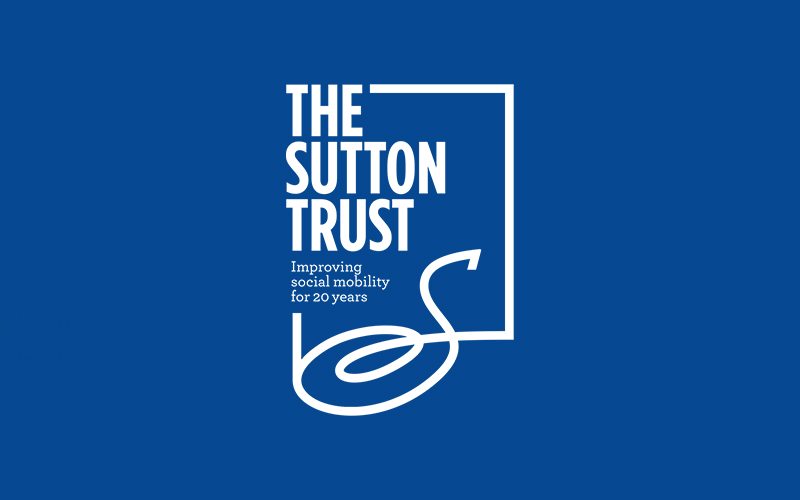What impact does COVID-19 have on transition to university?

🎓📝📚
The transition from school or college to higher education can be difficult. Even prior to the transition to university, prospective students will undeniably be thinking about their course choice and the impact this will have on their future whilst juggling A-Levels.
Upon starting, new undergraduates have to adapt to an unfamiliar environment, sometimes far from home, and in many cases, experience living independently for the first time.
These challenges can impact greatly on their emotional health, which will influence their academic and professional development. For these reasons, transition to university has long been the centre point of lively debates among educators and reformers, who have seen the clear benefits of trying to ease the process as much as possible.
The COVID-19 pandemic has impacted the delivery and access to education at all phases, raising significant concerns about transition between key stages and phases of school. Higher education is no exception. Applicants to university are facing a high amount of uncertainty, having to make life changing decisions based on an unknown grade and in some cases, limited support from their current school.
- In addition, current university students have seen their classes switch to virtual learning, many are facing financial insecurity, potentially impacting their ability to afford to study. The Sutton Trust recently conducted a poll to assess the impact of the COVID-19 on higher education and university transition, surveying 511 current university applicants and 895 current university students. Their findings make for interesting reading.

What impact does COVID-19 have on university applicants?
The polling results revealed heightened anxiety among university applicants, as 48% believe that COVID-19 will have a negative impact on their chances of getting into their first-choice university. The findings also show that working class applicants are more worried about this impact than their middle-class peers (51% vs 43%)[1].
The concerns raised by the students who believed it would have a negative impact were around how will the grades be awarded and how places will be distributed, with fears shared around a potential cap on places.
An important outcome from the research is that almost a fifth of those surveyed admitted having changed their minds about their next year university attendance or have yet to decide. Among those who changed their minds, some planned on taking a gap year while others switched their first university choice. Overall, working class students were more likely to have changed their minds. The reasons for this disparity are not currently clear. One potential reason given by the Sutton Trust is that working class students are generally much more likely to pick a neighbouring university and stay living at home. The financial uncertainty due to the current crisis may play a significant role in them shifting their choice for a university closer to home.
Concerning their studying conditions, exams and results, the results of the survey highlighted that applicants from working class backgrounds were twice as likely to have insufficient access to internet or suitable place and material to study, compared to their peers from middle class backgrounds.
The impact of COVID-19 is having a disproportionate effect on students from state schools. Private schools have been identified to be almost twice as likely to still be providing A-Level content to their students, compared to state schools (57% of students in private schools declared still receiving regular work and feedback from their teachers compared with just 30% of students from state schools). Finally, over half of the surveyed students answered they would likely choose to take a replacement exam in autumn if they if they didn’t get the grades they hoped for.
The statistics shared above raise important concerns in the fairness of the transition process under COVID-19. Students who are not currently accessing A-Level content will be less prepared than their peers for the start of the new academic year when they start university or go back to college/sixth form or for the potential rescheduled exams in Autumn.
The new grading systems for A-Levels (and equivalent), which will determine the results of this year’s applicants and will be based primarily on teacher assessments, moderated by exam regulators[2].
In total, 43% of students felt that the new assessment procedure around A-Levels was likely to have a negative impact on their grade, and 72% believed it will be less fair compared to regular times.
Previous research showed that teacher assessment can underestimate the ability of disadvantage students[3]. This systems hence bears the risk of being detrimental for students from lower socioeconomic backgrounds, with knock on impacts for their progression to university.

What impact does COVID-19 have on current university students?
The report also investigated how many current university students were facing enhanced financial difficulties due to the pandemic. 30% of students felt they were struggling to afford studying because of the pandemic, with those outside Russell Group institutions more likely to have financial concerns.
Many students often have to balance their studies with a job to afford their studies. 34% of the student surveyed reported they had seen a reduction in the number of hours at work, had not been paid for work completed, or lost their jobs, and almost a quarter said their parents/carers were less financially able to support them since the government introduced their stay at home measures.
Students with part time jobs at university are often more exposed to financial difficulties than their counterparts, and have to balance a larger workload. Striking this balance can potentially have an impact on their academic results and their mental and health well-being. The results gathered by The Sutton Trust are alarming, particularly when considering the existing implications of balancing employment with studies.
Finally, 6% of current university students surveyed reported that they do not have sufficient access to electronic devices required to access learning and assessment, and 23% reported a lack of access to a suitable place to study. These polling answers are particularly revealing in light of the fact that 74% of students report that their exams and assessment are now being carried out online.
What recommendations did The Sutton Trust provide?
In light of their findings, The Sutton Trust provides recommendations to address the impact of COVID-19 on students transitioning from A-Level to university pupils and on current university students:
- Additional financial support should be provided to students from families suffering from financial stresses due to coronavirus. This could be achieved with the government providing additional grants, and universities bolstering hardship funds when possible and raising awareness around them.
- Students with limited access to equipment, internet access and workspaces required to complete assessments online should be offered reasonable accommodations to counter the impact on their academic results.
- Exam regulators such as Ofqual should be mindful of attainment gaps and should monitor it within their new grading system. Any widening of the attainment gap should lead to a future adjustment in the process.
- Admission to university should be contextualised where possible, and applicants from disadvantaged background who missed their offer grades should receive closer attention, especially given the recent upheaval in schools and the cancellation of exams.
- If capped numbers were to be introduced, they need to be very carefully calibrated to minimise their impact on disadvantaged students and the widening participation agenda. Selective universities should keep meeting their Access and Participation Plan targets.
- Universities should offer additional support and advice to students making important decisions about their future, especially when approaching the final UCAS deadline and around A-Level results day.
- In the long run, universities should move to Post-Qualification Applications, ending the usage of predicted grades (which were acknowledged as unreliable in Ofqual’s role in adjusting grades).
Transitioning to higher education is already a challenging time for students, and the current pandemic has brought even further considerations which must be made, to the table.
As Sir Peter Lampl, founder and chairman of the Sutton Trust, said
"there are no easy solutions to this unprecedented situation"
Schools and universities, along with the government, need to work together to lessen the effect of the crisis. We need to ensure that all young people, regardless of their background and situation, can still have the opportunity to access university and succeed in their higher education. This will imply financial efforts, maximised commitment, and enhanced scrutiny from all parties.
WW

COVID-19: University Access & Student Finance.
You can find a link to the full Sutton trust report here.
The Sutton Trust Report
You can also read our article about the impact of COVID-19 on social mobility and disadvantaged students here.
References:
[1] The Sutton Trust uses the NRS social grade as defined by the Market Research Society to classify people as working class or middle class. The grading is based on the occupation and employment status of the Chief Income Earner in the household. The middle class is defined as ‘ABC1’ (A for upper middle class: higher managerial, administrative or professional; B for middle middle class: intermediate managerial, administrative or professional; and C for lower middle class: supervisory or clerical and junior managerial, administrative or professional). The working class is defined as ‘C2DE’ (C2 for skilled working class (skilled manual workers; D for working class (semi-skilled and unskilled manual workers); and E for non working (state pensioners, casual and lowest grade workers, unemployed with state benefits only). See MRS definition here:
https://www.mrs.org.uk/pdf/Definitions%20used%20in%20Social%20Grading%20based%20on%20OG7.pdf
[2] Ofqual in England, the Scottish Qualifications Authority in Scotland, Qualifications Wales in Wales and the Council for Curriculum, Examinations and Assessment in Northern Ireland
[3] T. Campbell (2016) Stereotyped at Seven? Biases in Teacher Judgement of Pupils’ Ability and Attainment. Journal of Social Policy. Available at: https://www.semanticscholar.org/ paper/Stereotyped-at-Seven-Biasesin-Teacher-Judgement-of-Campbell/5 252b04c3b8df3c8a35b9c70357bd 06473d03027 / Wyness (2017) Rules of the Game: disadvantaged students and the university admissions process. Sutton Trust. Available at: https:// www.suttontrust.com/wp-content/ uploads/2017/12/Rules-of-the-Game. pdf


